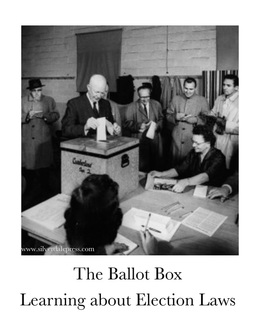 In the third 2016 presidential debate, Donald Trump made headlines for not saying whether he would accept the outcome of the election. Hillary Clinton called his response "horrifying." Whether you believe that the election is rigged or that the loser should automatically accept the outcome, students should understand our election laws. Our system is not perfect. It is run by humans and subject to human error. Yet, in making their election laws, states work to balance access to the polling place with keeping fraud out of the process. Voting doesn't just happen on Election Day anymore. Though Election Day is still several weeks away, people around the country are already casting their ballots. Over the last decade, states have changed their laws to allow for more and more options for voting. Americans like choices and flexibility. And officials want to make it as easy as possible for citizens to vote. They have been concerned about low turnout rates. Only between fifty and sixty percent of eligible Americans have turned out to vote in recent presidential elections. Election laws differ from state to state. Some laws--like requiring voters to present identification--are controversial. The National Conference of State Legislatures is a good resource for comparing and contrasting state election laws. Click on the links below to access the information. This week, have your student look at the laws for the state where you live. And then choose another state so that you can compare and contrast election laws. Voter ID Laws Absentee and Early Voting Same Day Voter Registration Vote by Mail Online Voter Registration Preregistration for Young Voters Reflect
0 Comments
Leave a Reply. |
Silverdale PressCheck out our About Page to learn more about us! Categories |

 RSS Feed
RSS Feed